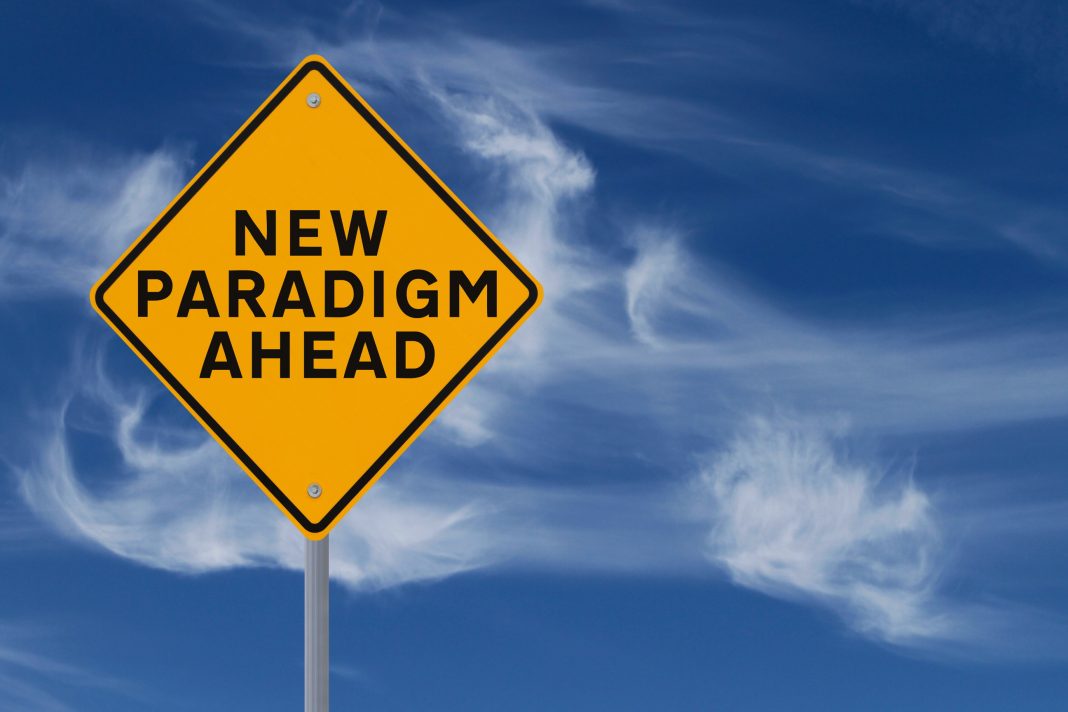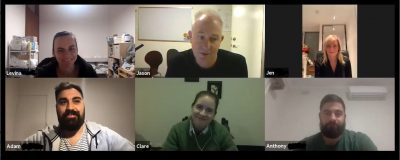Strategy in a Post COVID-19 World
If you look on the Internet right now, you’ll find everybody giving advice about how to survive the COVID-19 lockdown. Reduce costs, preserve cash, find new channels, add so much value to your customer that they can’t afford to get rid of you. It’s all great advice for how to cope with the world as we know it right now.
What I’m not seeing a lot of is advice on how to start planning strategy for a post COVID-19 world. Why is this? Uncertainty. We know what the world looks like right now, but we don’t really know what the world is going to look like when we emerge from this lockdown period. Within this context, I was both delighted and filled with trepidation when Jason invited me to write on the topic for his Square Holes community. Why am I filled with trepidation? Again, uncertainty.
If you are unfamiliar with our business, Literally Brilliant, we help companies understand what makes them BRILLIANT in the eyes of their customers, articulate that brand promise in narrative form and then help them re-organise their business to deliver the brand promise LITERALLY every day. A key step in our process is to explore what we call the “narrative of mission”. Using our TenTwoSix™ model, we explore big picture goals of where our clients want their brand or business to be in 10 years’ time. Then through connecting those goals to two-year objectives and six-month priorities, look at immediate actions that move them towards those goals. In the model, we account for uncertainty as it increases into the future. It assumes that uncertainty over the next six months is low but over the next ten years is high. The model makes uncertainty manageable.
Behold the pandemic. Normal models of business are challenged – even our legendary TenTwoSix™ model. The degree of uncertainty over the next six months are unnaturally high and the course of time always brings with it further uncertainty.
What will the world look like after COVID-19?
Here are my immediate thoughts before I get too serious …
- My first prediction is that time will make anyone who makes a prediction about the post COVID-19 world look like an idiot. (Now, no matter what I say, I can always come back to this as a safe-haven.)
- Tailors will sell a lot fewer suits with two sets of trousers. (I have been on so many video conference calls in a shirt, tie, suit jacket and jeans that my suit trousers are never going to wear out!)
- Toilet paper manufacturers are going to go through a long sales slump at some stage. (Unlike beer, rice and pasta where having it in the house provokes increased consumption, having a stockpile of 3,000 rolls of toilet paper is not going to provoke a significant increase in usage.)
There has been an explosion of jokes and memes on social media exploring these ideas. Certainly, there has been an increase in the online literacy of the general population. Look at these memes.
They are telling you what people are thinking. This will help you to understand what we really know about how COVID-19 is changing the way we think and act.
What do we know for sure?
1. Paradigm C will be different.
Prior to the COVID-19 lockdown, the world was much as we had known it. I like to call it Paradigm A. On the 10th of March, I was living in Paradigm A, happily confirming all of my appointments for my business trip to Europe and making last minute arrangements prior to leaving two days later. A few hours later, I received an email saying that the conference, that was the underlying reason for my trip, had been postponed indefinitely.
A quick chat to a client and my business partner (my wife) and we started cancelling all our meetings. The trip was off. Every meeting was cancelled before sunset that day. From then, what seemed like an over-reaction became an imperative and we started progressive lockdown directives. By the following week, we were in a different world. We were living in Paradigm B.
Living in Paradigm B has opened us to all manner of new thinking. I have been working with UK clients on Zoom for quite a while now. A year ago, hardly anyone knew what I was talking about when I said I had a Zoom meeting that night. Today, everyone knows what a Zoom meeting is. Our kids are doing Uni tutorials on Zoom and our parents want to know how to use it to see the grandkids. Out of necessity, companies that had been resisting flexible working arrangements for their employees have found that working from home can be extremely productive.
People have discovered that switching on the laptop for a team meeting videoconference at 8:30am is less demanding of their time than getting into the office by 9am. People have avoided the stress of the morning commute and the afternoon traffic chaos … and they are not keen to reacquaint themselves any time soon. People have upgraded their internet connections, established home offices, started shopping online (many for the first time in particular categories), explored new remote socialisation techniques (including after work videoconference drinks) and have stayed in at nights for weeks. The cancellation of kids sports and other extra-curricular activities has resulted in a new dynamic in the household. We have seen our next-door neighbour more times in the last three weeks than we have in the previous three years.
I suspect that the relaxation of the social distancing and isolation directives will be a gradual process. But, gradual or instant, it is unlikely that we will return to Paradigm A. Living through Paradigm B has taught many of us that we can, for example, work from home. It has also taught us the collaborative and social value of the time we spend together with our work colleagues. We have discovered how easy it is to order wine and have it delivered to our homes, from anywhere in the world. Not only wine but food, clothing, even car battery rechargers. Our perspectives have changed. We will approach things differently as a result of our changed perspectives.
We will not move out of Paradigm B, back to Paradigm A.
We will move on to a new world, the world of PARADIGM C.
We have had a paradigm shift event previously in our (relatively recent) history and we seem to have forgotten about it. It was the 11th of September 2001. People stopped flying, our approach to security and our willingness to sacrifice our own human rights changed overnight. COVID-19 will similarly be a global change to the way we do things.
2. Risk Management Rethought
Almost certainly, businesses will re-think their risk management. With the pandemic hitting densely populated cities the worst, we may see the trend of Eastern State centralisation reversed as a “duty of care” issue. Who knows, we may see the return of some head offices to Adelaide, Perth, Bendigo and Newcastle.
Social distancing will be relaxed, but it will never go away. New approaches are already being adopted to minimise cross infection risks in workplaces and retail environments. Again, this is a duty of care issue.
Business continuity risk management will see multi-source of raw materials and components, often with a local option. If a country in our supply chain is shut down, can we continue to trade? Similarly, what if a sales channel is closed down? Food companies exclusively servicing the hospitality industry have needed to find new markets overnight. Companies with a number of channels have been able to grow one to compensate for the losses in another. Retailers will rediscover the value of choice.
Add to all of this a renewed understanding of the importance of cash. Companies that make it through to the other side will have to consider building cash reserves to be able to cope with the next event.
3. People will Think and Choose
I was talking about life after COVID-19 with an old client. He was suggesting that participation in sport was going to collapse. His argument was that the past few weeks of not having to take his kids to and from sporting commitments had awakened him to the simple joy of a life less busy. My wife disagreed, saying it was not that simple. She said it would probably be to the advantage of the well-run clubs. If you love your club and the experience of participation, you would really be missing that right now so when the restrictions are lifted, these people will return to the club more enthusiastic than ever. I agree with my wife and think her insight is really important here.
To some extent, many people have been flooding through life following the path wherever it led. People found things to do, to stay busy, remain entertained. If everybody else was taking up a particular sport, they went along with it. Not anymore.
Last week I published an article on LinkedIn called “Time to Breathe” (Read here >). In the paper, I encouraged people to use the lockdown to think strategically about their business and how they would respond to the post COVID-19 world. I acknowledged that many people were taking the time to think about their lives; what was and wasn’t important to them. I had even observed a change in behaviours, a gentler mood.
I know that we have been re-evaluating our lives and that will probably change our buying behaviours. If you are doing it, chances are other people are re-evaluating their lives as well. Your consumer will have changed.
…
How do we prepare for post COVID-19 world?
1. Start thinking about it now …
Don’t survive today to die tomorrow. Survive today to thrive tomorrow.
2. Watch all the signs of change in the market place …
and, giving them due consideration, act.
3. Get help on strategy …
Many companies have reached out for help with the tactics of survival.
Don’t neglect your long-term strategy.
4. Keep engaging in thought leadership …
Keep reading blogs like this.
Keep the conversation going.
Nobody is smarter than all of us.




